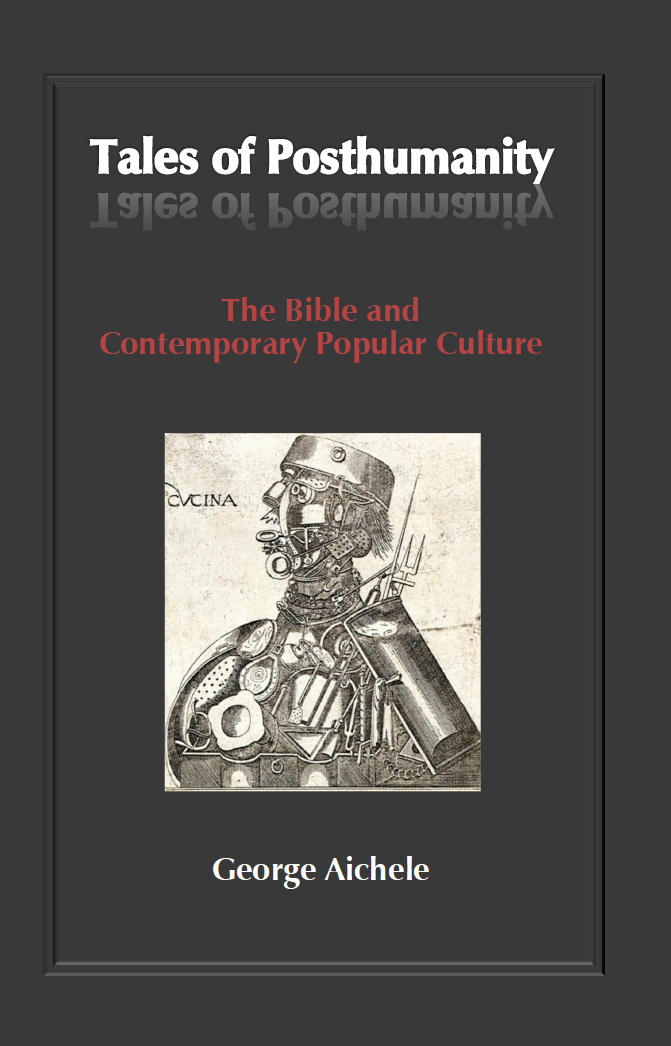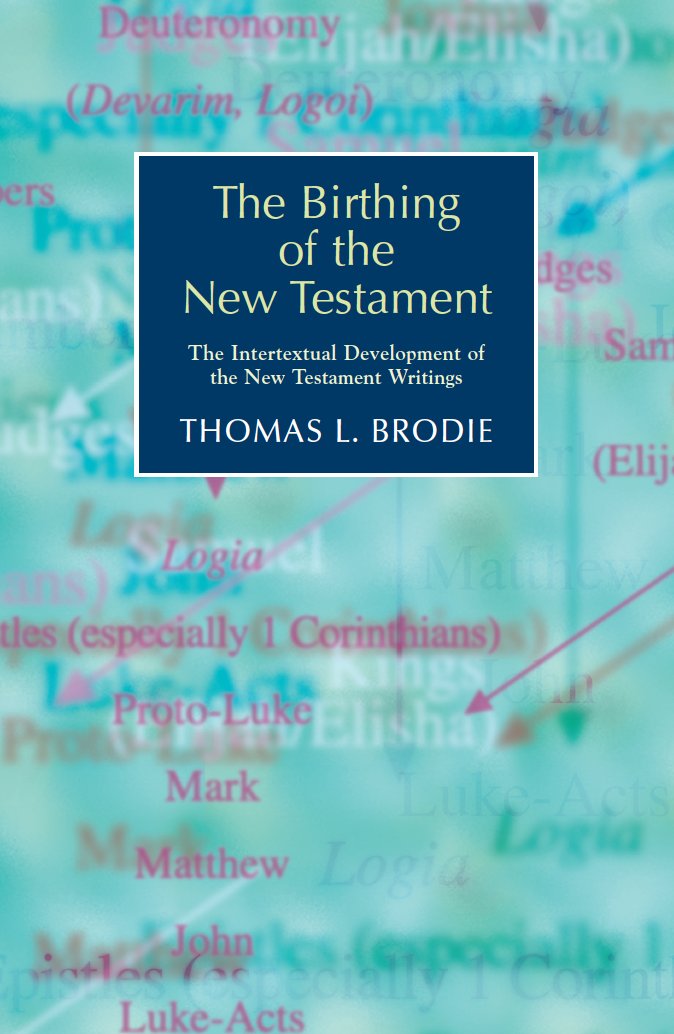Tales of Posthumanity: The Bible and Contemporary Popular Culture
Published: Oct 2014
£50.00
Images and concepts of the ‘posthuman’ go back at least as far as the famous ‘madman parable’ in F. Nietzsche’s The Gay Science, and their ‘roots’ go back much further still. In turn, the image or theme of the posthuman has played an increasingly important role in recent literature, film, and television, where the notion of humanity as a ‘larval being’ (G. Deleuze) that transforms itself or is being transformed into something else, for better or worse, has become increasingly common.
This book explores these concepts in relation to biblical texts, particularly texts from the gospel of Mark but also from the books of Daniel, Jonah and Qoheleth (Ecclesiastes), and the Acts of the Apostles. At the same time, texts from recent popular culture are examined, including novels by J. Morrow, C. Miéville and G. Ryman, the movies Local Hero and Lars and the Real Girl, and the Heroes TV series among others.
Through a kind of inverted causality, recent texts in various media such as these transform earlier and otherwise unrelated ones, including biblical texts, into precursors, giving them new, postmodern meanings, just as the older texts once signified in still other ways before the advent of the familiar modern world. As a result, biblical texts signify in remarkably different ways in relation to the posthuman. Posthuman beings appear in both biblical and non-biblical texts, and the biblical phrase ‘sons of men’ (in both plural and singular versions) plays a crucial role, where it too takes on meanings that range far beyond the conventional or traditional ones.
Tales of Posthumanity: The Bible and Contemporary Popular Culture
£50.00
Images and concepts of the ‘posthuman’ go back at least as far as the famous ‘madman parable’ in F. Nietzsche’s The Gay Science, and their ‘roots’ go back much further still. In turn, the image or theme of the posthuman has played an increasingly important role in recent literature, film, and television, where the notion of humanity as a ‘larval being’ (G. Deleuze) that transforms itself or is being transformed into something else, for better or worse, has become increasingly common.
This book explores these concepts in relation to biblical texts, particularly texts from the gospel of Mark but also from the books of Daniel, Jonah and Qoheleth (Ecclesiastes), and the Acts of the Apostles. At the same time, texts from recent popular culture are examined, including novels by J. Morrow, C. Miéville and G. Ryman, the movies Local Hero and Lars and the Real Girl, and the Heroes TV series among others.
Through a kind of inverted causality, recent texts in various media such as these transform earlier and otherwise unrelated ones, including biblical texts, into precursors, giving them new, postmodern meanings, just as the older texts once signified in still other ways before the advent of the familiar modern world. As a result, biblical texts signify in remarkably different ways in relation to the posthuman. Posthuman beings appear in both biblical and non-biblical texts, and the biblical phrase ‘sons of men’ (in both plural and singular versions) plays a crucial role, where it too takes on meanings that range far beyond the conventional or traditional ones.
Acts and Ethics
Published: Dec 2005
£50.00
This volume, the fruit of the sessions on the Book of Acts at the Annual Meeting of the Society of Biblical Literature, in San Antonio, Texas, in November 2004, contains these papers:
Stanley E. Porter, 'The Genre of Acts and the Ethics of Discourse'
Robert L. Brawley, 'Social Identity and the Aim of Accomplished Life in Acts 2'
F. Scott Spencer, 'Wise Up, Young Man: The Moral Vision of Saul and Other "Neaniskoi" in Acts'
Thomas E. Phillips, 'Paul as a Role Model in Acts: The "We"-Passages in Acts 16 and Beyond'
Richard P. Thompson, "What Do You Think You Are Doing, Paul?" Synagogues, Accusations, and Ethics in Paul's Ministry in Acts 16-21'
Matthew L. Skinner, 'Unchained Ministry: Paul's Roman Custody (Acts 21 —28) and the Sociopolitical Outlook of the Book of Acts'
C. Kavin Rowe, 'Authority and Community: Lukan Dominium in Acts'
Robert C. Tannehill, 'Do the Ethics of Acts Include the Ethical Teaching in Luke?'
Pamela Hedrick, 'The Good Samaritan, Cornelius, and the Just Use of Force'
Acts and Ethics
£50.00
This volume, the fruit of the sessions on the Book of Acts at the Annual Meeting of the Society of Biblical Literature, in San Antonio, Texas, in November 2004, contains these papers:
Stanley E. Porter, 'The Genre of Acts and the Ethics of Discourse'
Robert L. Brawley, 'Social Identity and the Aim of Accomplished Life in Acts 2'
F. Scott Spencer, 'Wise Up, Young Man: The Moral Vision of Saul and Other "Neaniskoi" in Acts'
Thomas E. Phillips, 'Paul as a Role Model in Acts: The "We"-Passages in Acts 16 and Beyond'
Richard P. Thompson, "What Do You Think You Are Doing, Paul?" Synagogues, Accusations, and Ethics in Paul's Ministry in Acts 16-21'
Matthew L. Skinner, 'Unchained Ministry: Paul's Roman Custody (Acts 21 —28) and the Sociopolitical Outlook of the Book of Acts'
C. Kavin Rowe, 'Authority and Community: Lukan Dominium in Acts'
Robert C. Tannehill, 'Do the Ethics of Acts Include the Ethical Teaching in Luke?'
Pamela Hedrick, 'The Good Samaritan, Cornelius, and the Just Use of Force'
The Birthing of the New Testament: The Intertextual Development of the New Testament Writings
Published: Nov 2004
£22.50
Many are saying that the prevailing paradigm of New Testament origins is going nowhere. In its place, Brodie’s stunning book invites us to suspend all ‘knowledge’ we already have about the history of the New Testament’s development, and to be willing to entertain the following thesis.
Everything hinges on Proto-Luke, a history of Jesus using the Elijah–Elisha narrative as its model, which survives in 10 chapters of Luke and 15 of Acts. Mark then uses Proto-Luke, transposing its Acts material back into the life of Jesus. Matthew deuteronomizes Mark, John improves on the discourses of Matthew. Luke–Acts spells out the story at length. Add the Pauline corpus, the descendant of Deuteronomy via the Matthean logia, and the New Testament is virtually complete.
This is a totalizing theory, an explanation of everything, and its critics will be numerous. But even they will be hugely intrigued, and have to admit that Brodie’s myriads of challenging observations about literary affinities demand an answer.
The Birthing of the New Testament: The Intertextual Development of the New Testament Writings
£22.50
Many are saying that the prevailing paradigm of New Testament origins is going nowhere. In its place, Brodie’s stunning book invites us to suspend all ‘knowledge’ we already have about the history of the New Testament’s development, and to be willing to entertain the following thesis.
Everything hinges on Proto-Luke, a history of Jesus using the Elijah–Elisha narrative as its model, which survives in 10 chapters of Luke and 15 of Acts. Mark then uses Proto-Luke, transposing its Acts material back into the life of Jesus. Matthew deuteronomizes Mark, John improves on the discourses of Matthew. Luke–Acts spells out the story at length. Add the Pauline corpus, the descendant of Deuteronomy via the Matthean logia, and the New Testament is virtually complete.
This is a totalizing theory, an explanation of everything, and its critics will be numerous. But even they will be hugely intrigued, and have to admit that Brodie’s myriads of challenging observations about literary affinities demand an answer.



